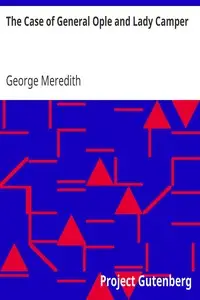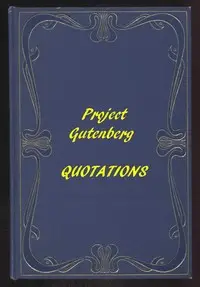"The Case of General Ople and Lady Camper" by George Meredith is a 19th-century novel about General Ople, a retired officer, who wants a peaceful life. His plans get interesting when Lady Camper, a strange neighbor, shows up and shakes up his social life. The story begins with the General looking for a nice home near London for himself and his daughter, Elizabeth. He's excited and hopeful until he meets Lady Camper, who puzzles and intrigues him and has a reputation for being distant. The General is shown as a kind, but perhaps a bit clueless, man. As he gets to know Lady Camper, their relationship begins to bring up questions about social status, attraction, and the differences between being young and old and what the future holds.

The Case of General Ople and Lady Camper
By George Meredith
A retired general's quiet dreams are delightfully disrupted by the arrival of an unusual woman, turning his world upside down with unexpected romance and social challenges.
Summary
About the AuthorGeorge Meredith was an English novelist and poet of the Victorian era. At first, his focus was poetry, influenced by John Keats among others, but Meredith gradually established a reputation as a novelist. The Ordeal of Richard Feverel (1859) briefly scandalised Victorian literary circles. Of his later novels, the most enduring is The Egoist (1879), though in his lifetime his greatest success was Diana of the Crossways (1885). His novels were innovative in their attention to characters' psychology, and also portrayed social change. His style, in both poetry and prose, was noted for its syntactic complexity; Oscar Wilde likened it to "chaos illumined by brilliant flashes of lightning". Meredith was an encourager of other novelists, as well as an influence on them; among those to benefit were Robert Louis Stevenson and George Gissing. Meredith was nominated for the Nobel Prize in Literature seven times.
George Meredith was an English novelist and poet of the Victorian era. At first, his focus was poetry, influenced by John Keats among others, but Meredith gradually established a reputation as a novelist. The Ordeal of Richard Feverel (1859) briefly scandalised Victorian literary circles. Of his later novels, the most enduring is The Egoist (1879), though in his lifetime his greatest success was Diana of the Crossways (1885). His novels were innovative in their attention to characters' psychology, and also portrayed social change. His style, in both poetry and prose, was noted for its syntactic complexity; Oscar Wilde likened it to "chaos illumined by brilliant flashes of lightning". Meredith was an encourager of other novelists, as well as an influence on them; among those to benefit were Robert Louis Stevenson and George Gissing. Meredith was nominated for the Nobel Prize in Literature seven times.












